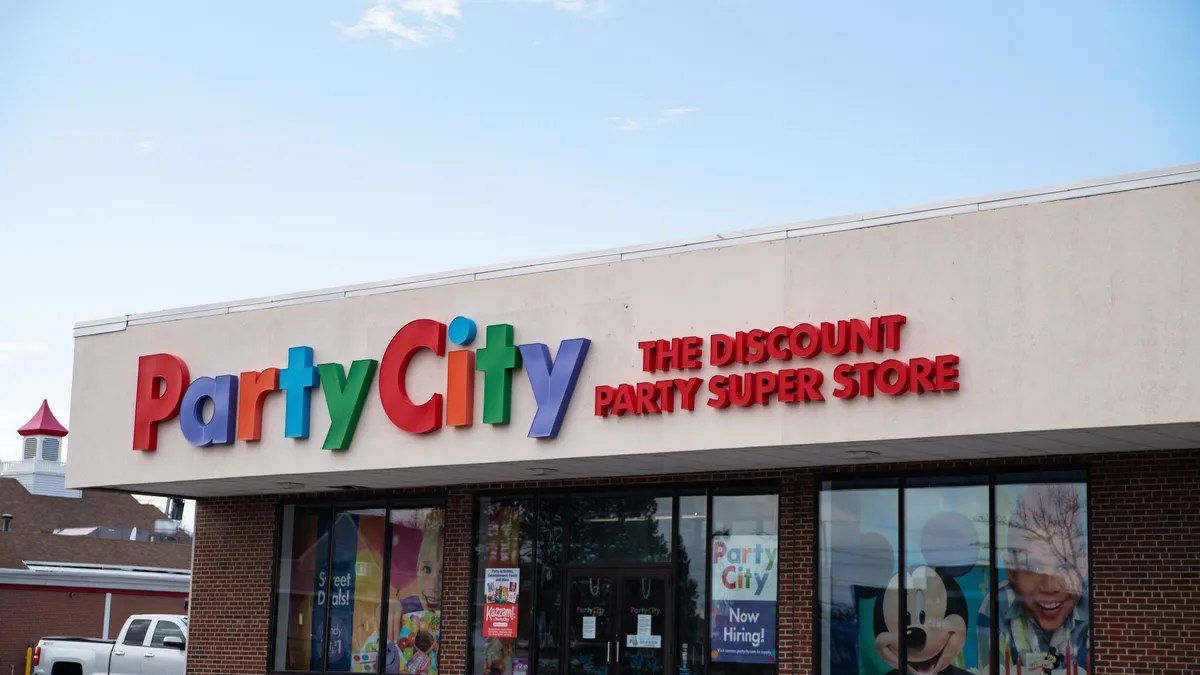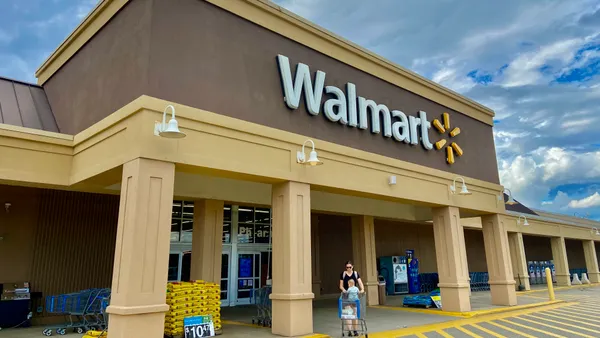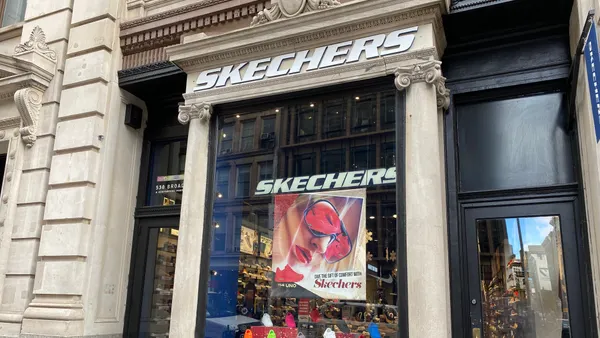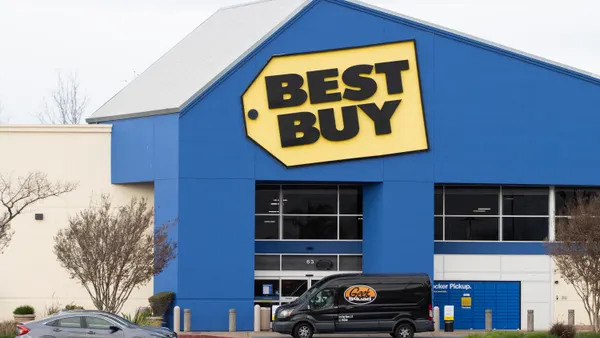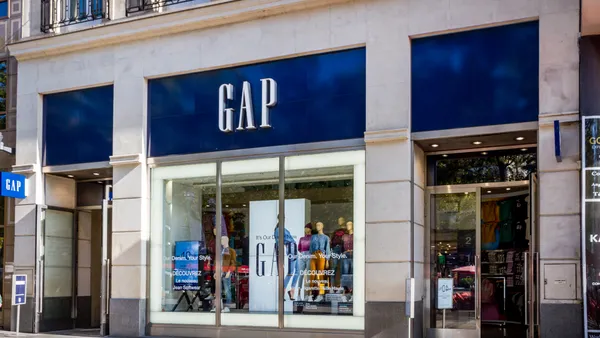Dive Brief:
- Fitch Ratings lifted the long-term credit rating for Party City to B- from CCC+ this week, citing confidence in the company's 2021 performance and "longer-term operating trajectory."
- Analysts with the ratings agency also pointed to EBITDA that has risen "modestly" above pre-pandemic levels, $230 million in cost-cutting efforts and positive cash flow, though they noted elevated leverage levels.
- Fitch issued a stable outlook for the company's rating.
Dive Insight:
Party City's struggles preceded the pandemic. For 2019, the company lost almost $77 million in sales from the previous year and posted a nearly $533 million net loss after years of profitability. Along with competitive issues, the company has been burdened with a large debt load, a legacy from a previous private equity acquisition.
When the pandemic hit, few categories in retail were as intimately, existentially affected as Party City's. Social gatherings are what party suppliers exist for, and COVID-19 carried the potential to turn any party into a super-spreader event. The retailer had to manage that reality along with temporary closures and traffic declines that most of the industry had to contend with.
Halloween was a case study in the company's compounding problems. Party City's Halloween City banner came up well short in 2019, with a disastrous sales decline signaling lost market share to online and other players. The company had to wait a full year to try to make those sales up, only to find itself in a pandemic that added unprecedented safety concerns to trick-or-treating, or shut the tradition down entirely in many areas.
Unsurprisingly, given all of the above, 2020 was another tough year financially for the company. Party City's sales fell another 21.2% from 2019, which, again, was a year of decline. The company accrued another net loss for the year that topped half a billion dollars and got C-level ratings slapped on it by ratings agencies.
Over 2021, the company has been working to reduce SKUs, reset core categories and improve its in-store experience, among other efforts. By the third quarter, the company was back in the black for the first nine months of the year, with sales up by more than $270 million over 2020. Halloween sales increased substantially over last year's — though it would have been cause for concern if they hadn't
For Q4, CEO Brad Weston said in a statement, "Notably, we saw continued strength in our core categories, which reflects our mission of being customer obsessed and demonstrates our strides in ensuring we are top of mind when it comes to anything celebratory."
But Party City still has to prove it can overcome the challenges posed by e-commerce and discounters that it was wrestling with before the pandemic. In their upgrade announcement, Fitch analysts said that while their confidence around the company's competitive position has "modestly improved, Party City's ability to stabilize market share longer term remains unknown."



